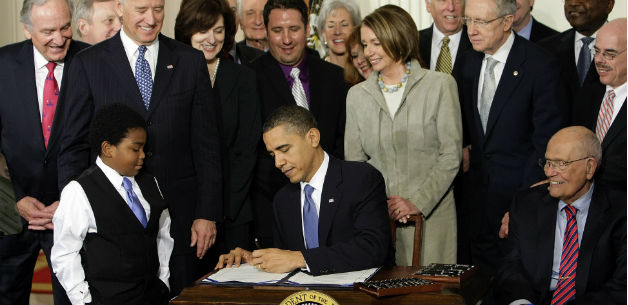The progressive blogosphere has been making a lot of noise recently about how the big problem for Barack Obama isn’t any fault of his own—it’s simply that the archaic, undemocratic Senate gets in the way of passing major legislation. John Heilemann has a big article on this theory in this week’s New York magazine, but Matt Yglesias probably offered the best distillation of it in a blog post last week:
Somewhere between 90 and 100 members of the United States Senate seem committed to the current supermajority system for passing legislation. The supermajority system could be changed, but it can’t be changed by Obama. And thus to assemble 60 votes, Obama needs to rely on Democrats who represent such states as Arkansas, Louisiana, North Dakota, Indiana, South Dakota, Montana, and Nebraska. These states are all more conservative than the average American state. This makes it, objectively, very difficult to secure 60 votes for a progressive legislative agenda. In the House of Representatives, which is elected in a different way, Obama hasn’t had a major problem securing a majority for a progressive legislative agenda.
I am very sympathetic to this theory. It’s probably true that, on balance, getting rid of the filibuster (or the Senate itself) would help progressives not just in the short term, but also down the road. But it’s worth remembering that if the Senate didn’t exist, Rep. Bart Stupak’s amendment to the House bill—which would dramatically reduce the availability of private insurance plans that cover abortion—would be the law of the land. Of course, health care reform would also have already passed. Dumping the Senate would come with some tough trade-offs.














